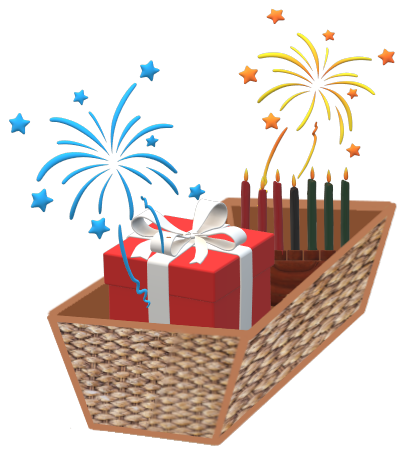Diwali
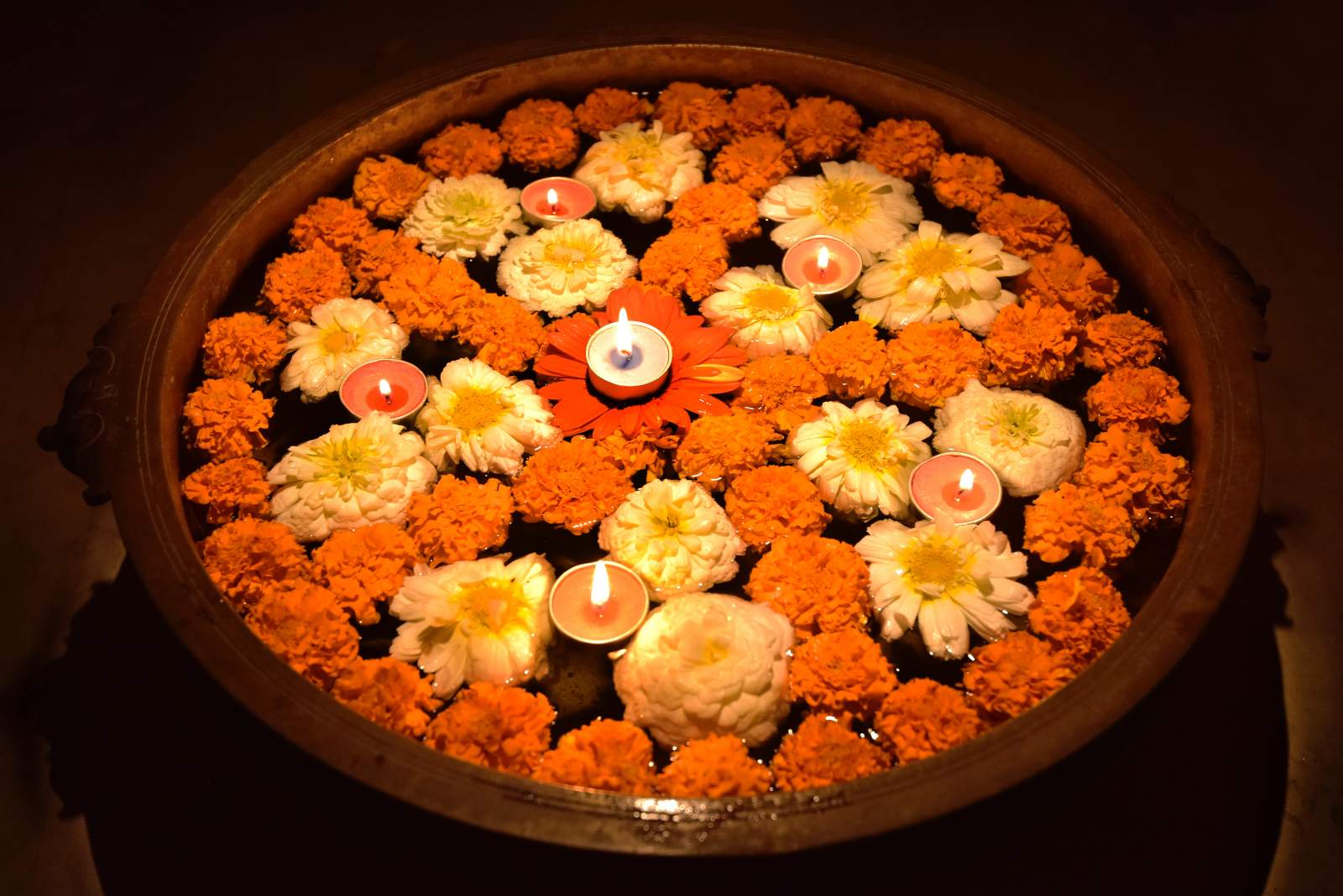
What is Diwali...
Diwali, or Deepawali, is known as the 'Festival of Lights'. It symbolises the spiritual 'victory of light over darkness, good over evil, and knowledge over ignorance'.
The Sanskrit words 'deepa' and 'avali' translate to 'lights' and 'row'. There are a vast number of languages spoken in the Indian subcontinent, where the festival originated, and that has led to manipulation of the original word so both Dewali and Deepawali are accepted in many areas.
Celebrated by many religions for different historical reasons, the celebrations follow a similar theme and all symbolise the same victory of good over evil.

When Is Diwali...
...and How Did It Start
Diwali takes place on the 15th day of the Hindu month of Kartika. The Hindu calendar is a lunar calendar so the date varies every year, but is typically mid-October to early November.
Hindus honor the return of their religious deities Sita and Rama to their homeland, following an exile of 14 years. Villagers lit a path for their return, following the defeat of the demon king Ravana by Lord Rama.
Jains celebrate the physical death and final Nirvana of Mahavira, the 24th Tirthankara. The celebrations date back to 527BC.
Sikhs celebrate Bandi Chhor Divas as well as Dewali. The festival is not identical to Dewali but occurs at the same time. One cause for celebration is to remember Bhai Mani Singh's martyrdom in 1738 as a result of his failure to pay a fine for trying to celebrate Diwali and thereafter refusing to convert to Islam.
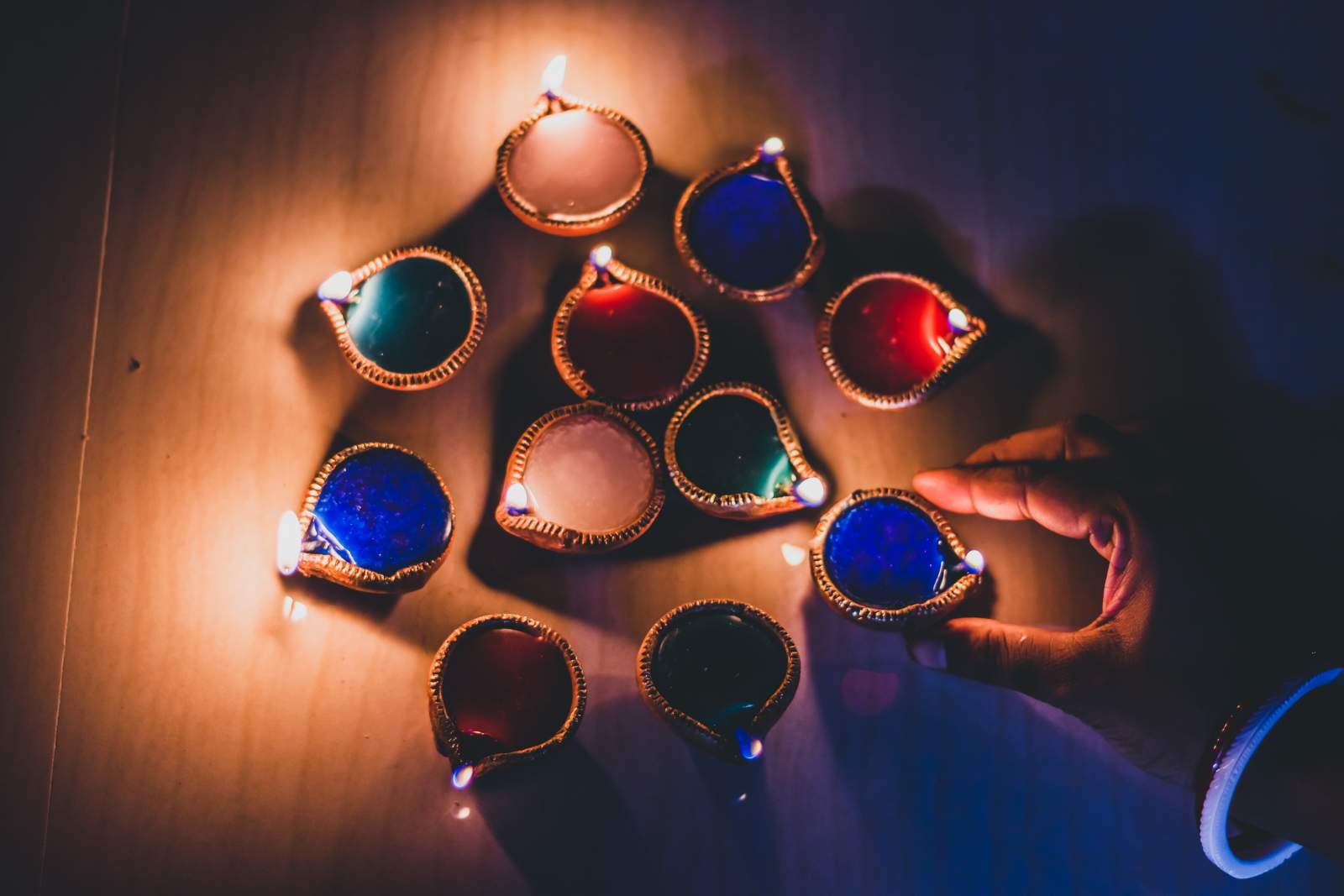
Who Celebrates Diwali
Diwali is celebrated by over 1 billion people. The number includes followers of the Hindu faith; followers of Jainism; Newar Buddhists in Nepal; followers of Sikhism.
The religions are followed world-wide but the majority of followers reside in India and other Asian countries.
India has the largest celebrations for Diwali but many festivities take place in other countries. Malaysia, Singapore, Nepal, Pakistan and Fiji all observe the day as a national holiday.
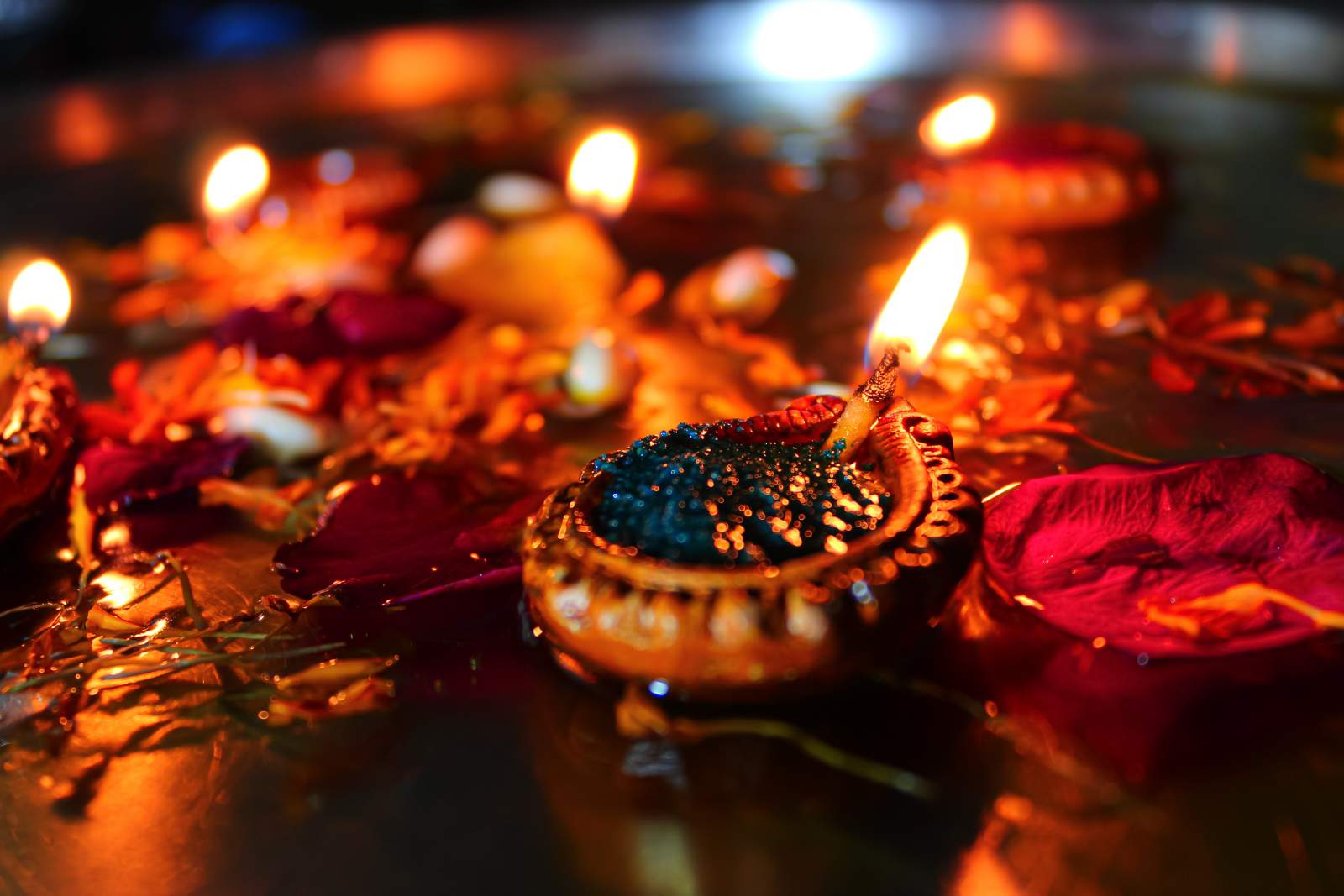
History Of The Holiday
Hinduism
The religious significance of the festival varies between regions in India. One tradition is that of Rama, Sita, Lakshman and Hanuman returning to Ayodhya after a 14 year exile. It is said Rama's army of good defeated the demon king Ravana's army of evil.
Another tradition says Krishna, and avatar of Vishnu, slayed the demon Narakasura the evil king. Krishna released 16000 women held captive by Narakasura and so the festival is held to celebrate the triumph of good over evil.
Many Hindus celebrate the goddess of wealth and prosperity, Lakshmi. The start of the five day celebration marks Lakshmi's birth from churning the cosmic ocean of milk by Devas and Asuras (gods and demons). The night of Diwali signifies the time when Lakshmi was wed to Vishnu.
Hindus in eastern India celebrate the goddess Kali, another symbolisation of victory of good versus evil. Mythical tales shared on Diwali vary widely but all share a common focus on righteousness, self-inquiry and the importance of knowledge. The resounding message remains the same throughout: knowledge, good and light ultimately triumphs over ignorance, evil and dark.
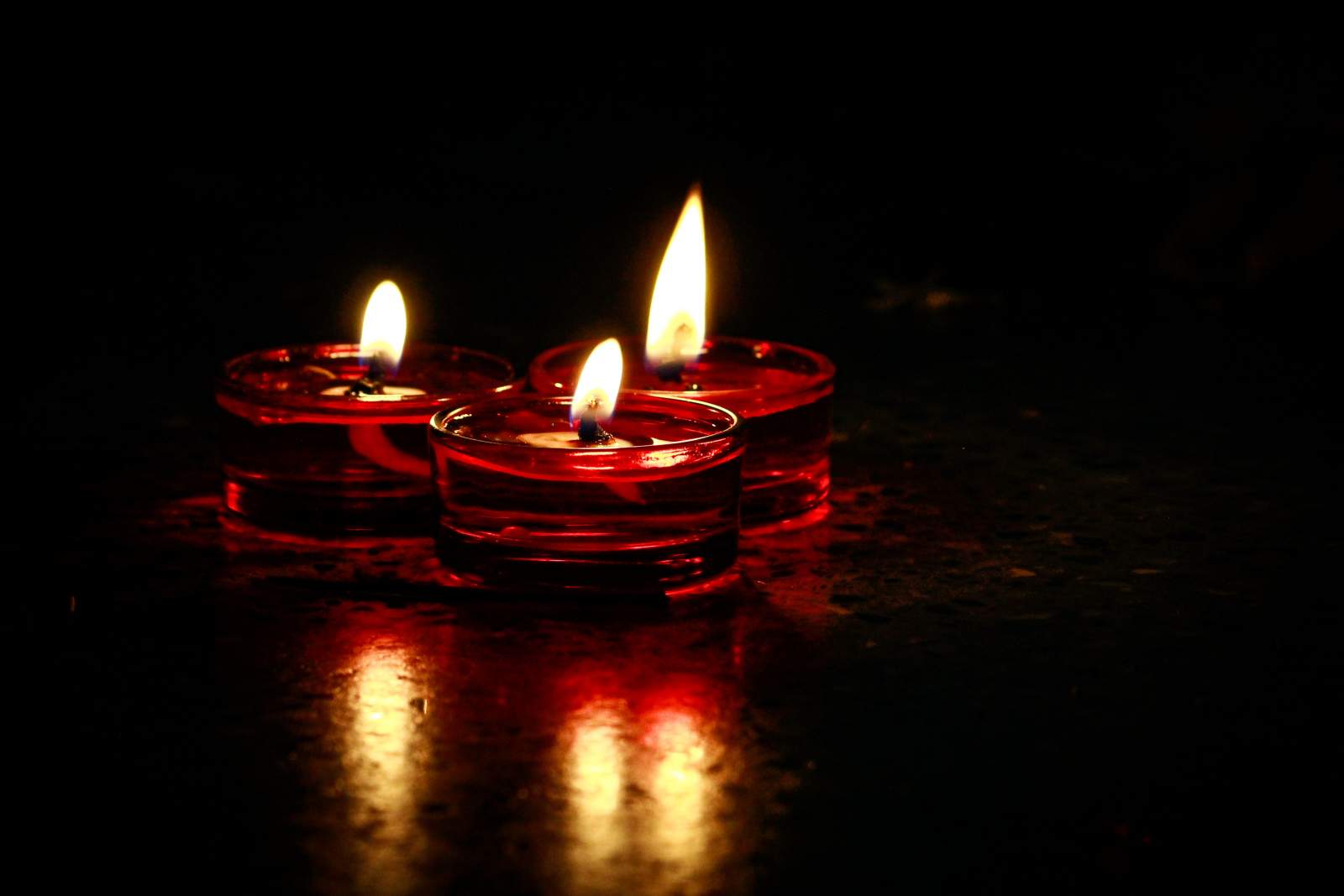
History Of The Holiday
Jainism
In Jain tradition, Diwali is a celebration of "Mahavira Nirvana Divas", the physical death and final nirvana of Mahavira. It is similar in practices to the Hindu Diwali, with traditions such as the lighting of lamps and the offering of prayers to Lakshmi.
The focus of the Jain Diwali remains the dedication to Mahavira. According to the Jain tradition, this practice of lighting lamps first began on the day of Mahavira's nirvana in 527 BC. 18 kings had gathered for Mahavira's final teachings and issued a proclamation that lamps be lit in remembrance of the "great light". Many historic paintings and artworks depict this traditional belief.
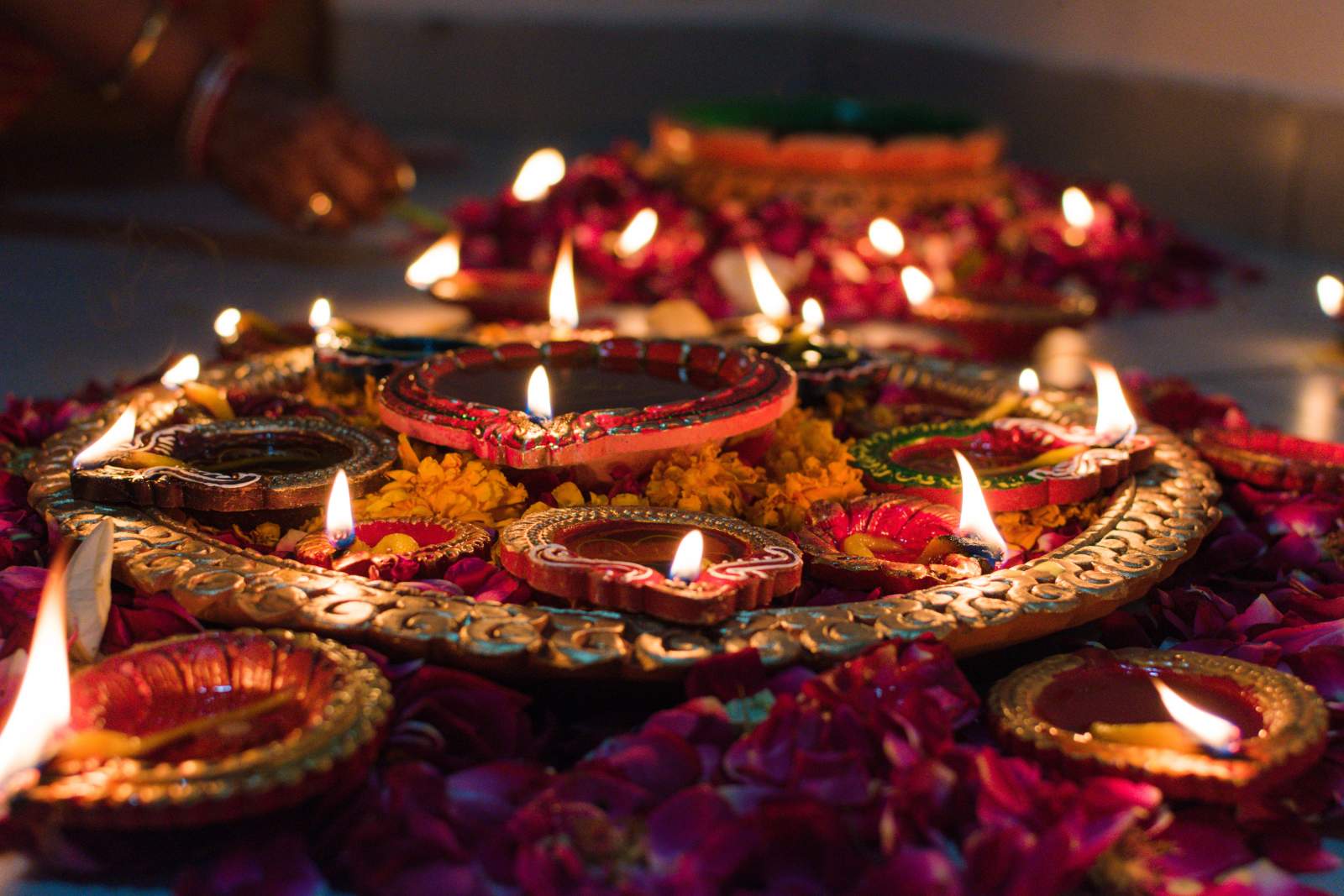
History Of The Holiday
Sikhism
Sikhs celebrate Bandi Chhor Divas, a remembrance of the release of Guru Hargobind from the Gwalior Fort prison and the day he arrived at the Golden Temple. The tradition is older than the sixth Guru Hargobind legend.
A well was built in Goindwal with eighty-four steps and Sikhs were invited to bathe in its sacred waters as a form of community bonding. Over time, these festivals became the most important of Sikh festivals. Holy sites such as Amritsar became focal points for annual pilgrimages.
The festival of Diwali highlights three events in Sikh history: the founding of the city of Amritsar in 1577, the release of Guru Hargobind from the Mughal prison, and the day of Bhai Mani Singh's martyrdom in 1738 as a result of his failure to pay a fine for trying to celebrate Diwali and thereafter refusing to convert to Islam.
